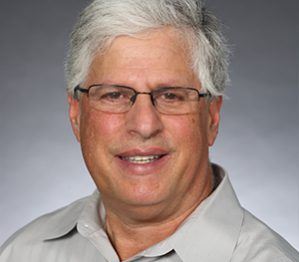CentraState’s Radiology Department offers comprehensive, state-of-the-art radiology services for adults and children. Our experienced radiologists, interventional radiologists, nurses and technologists use the most advanced technology to help detect, diagnose and treat a wide range of health problems—providing patients and referring physicians with rapid, reliable results and safe, expert care.
Our radiology technologists are certified by The American Registry of Radiologic Technologists, and our board-certified radiologists are additionally certified in subspecialties of neuroradiology, vascular radiology, nuclear medicine, breast imaging and interventional radiology.
CentraState’s Radiology Department offers comprehensive, state-of-the-art radiology services for adults and children. Our experienced radiologists, interventional radiologists, nurses and technologists use the most advanced technology to help detect, diagnose and treat a wide range of health problems—providing patients and referring physicians with rapid, reliable results and safe, expert care.
RADIOLOGY SERVICES
CentraState’s radiology department offers interventional radiology as a minimally invasive alternative for treating conditions that typically require surgery, including tumors and fibroids. Our treatment options include:
- Angiography (arteriography): This diagnostic technique is used to visualize the inside of blood vessels and organs to detect disease, injuries, and abnormalities that interfere with normal blood flow. It generally involves the insertion of a thin catheter into an artery at or near the suspected problem area through a small incision. Contrast dye is injected to make blood vessels visible on the X-ray. If a blocked blood vessel is found during the exam, the radiologist may be able treat it at that time with angioplasty and stenting.
- CO2 angiography: This uses the same as angiography, but with carbon dioxide (CO2) instead of contrast dye. This is beneficial for patients who are allergic to dye or have renal insufficiency. It can only be used for imaging kidneys and lower peripheral artery areas.
- Angioplasty: This therapeutic procedure opens up an area of blockage or narrowing inside a blood vessel using a tiny balloon on the tip of a catheter.
- Biliary drainage: A catheter is inserted into the bile duct, which allows bile to drain.
- Biopsy: Sample tissue is removed for diagnostic purposes.
- Dialysis fistulagram imaging: In this procedure for dialysis patients, a catheter (thin tube) is inserted into a fistula to assess how it is functioning and rule out blockages. A fistula is a connection between an artery and a vein created to provide enough blood flow at the appropriate pressure to make hemodialysis effective and possible.
- Lumbar puncture (spinal tap): This diagnostic procedure collects some fluid surrounding the brain and spinal cord to be examined by the Pathology Department.
- Nephrostomy: In the case of a blocked ureter, a tube is inserted into the kidney to allow urine drainage.
- Stenting: This is when a tiny tube (stent) is placed in an artery, blood vessel, or other duct to hold the structure open.
- Vascular access (peripherally inserted central catheter – PICC line): A catheter (thin tube) is inserted using ultrasound and X-ray for guidance to give intravenous (IV) medications or fluids for a prolonged period of time—for example, for chemotherapy regimens or extended antibiotic therapy.
To schedule a procedure, please call 732-294-2947.
A computed tomography (CT) scan, sometimes referred to as a CAT (computerized axial tomography) scan, is a special kind of X-ray that uses a powerful digital computer to capture cross-sectional, 3-dimensional images of the body’s tissues and organs. CT scans produce finely detailed images of bone, soft tissue, blood vessels, and organs including the heart, lungs, liver, kidneys, and pancreas. They are able to detect some conditions that regular X-rays cannot.
CT scans can sometimes replace exploratory surgery, saving patients unnecessary discomfort and inconvenience. CT scans can also assist in surgery and other treatment modalities, such as radiation therapy, in which effective dosage is highly dependent on the precise density, size, and location of a tumor.
Our CT capabilities helped CentraState earn licensed certification as a Primary Stroke Center from the New Jersey Department of Health and Senior Services. CT scans can provide vital information quickly when time is of the essence in accurately diagnosing and appropriately treating stroke to prevent or limit damage to brain tissue.
Lower-Dose Imaging for Children
Children are more sensitive to radiation, and while long-term risks are minimal, they are possible. CentraState ensures the lowest dose of radiation when performing CT scans on children while still maintaining quality diagnostic images.
Advanced CT Technology
CentraState offers the advanced technology of two new CT scanners: the GE OPTIMA CT660 128-slice and 64-slice CT scanners. They complete exams in less time while allowing for 30% to 50% dose reduction for all exams, further ensuring our commitment to using the lowest amount of radiation while obtaining the highest quality images possible.
These CT scanners produce images with greater detail, consistency, and speed, making our CT scanners particularly useful in examining dynamic organs, such as the beating heart and its major vessels. Scans can be timed to select images gathered between heart contractions, which eliminates blurring that can be caused by the heartbeat motion. Heart-scanning capability, usually referred to as a coronary CTA, is transforming the way physicians diagnose and treat heart disease.
Coronary Computed Tomography Angiography (CTA)
Coronary computed tomography angiography (CTA) is a noninvasive radiology test that uses a special type of X-ray allowing physicians to visualize the blood flow within the heart and coronary arteries. Coronary CTA aids in assessing heart function and identifying buildup of fatty deposits or calcium deposits that might interfere with blood flow.
Coronary CTA has been referred to as the next generation in cardiology care, allowing physicians to obtain cardiac images without the use of sedation. One of the most common tests for determining the location and extent of blockages in the coronary arteries is the coronary angiogram (or cardiac catheterization), which involves sedation and a longer recovery time than CTA.
During a coronary CTA examination, you receive an injection of nonionic contrast dye to help ensure the best images possible. X-rays pass through the organ being examined and are picked up by special detectors in the CT scanner. The information collected during the test is displayed as 3D images on a computer screen, enabling physicians to identify problem areas.
Coronary CTA scans at CentraState are performed by highly skilled, board-certified radiologists with additional certification or qualifications in vascular and interventional radiology and coronary CTA interpretation.
Contact Us
To schedule a CT scan or a coronary CTA, please request an appointment or call Centralized Scheduling at 732-294-2778.
Magnetic resonance imaging, or MRI, allows physicians to view remarkably clear, detailed images of the organs and soft tissues without the use of conventional X-rays. Injury or disease can often be spotted early through MRI, leading to quicker diagnosis and treatment and, ultimately, better patient outcomes.
MRI uses a powerful magnetic field and radio waves to produce intricate, cross-sectional pictures of the area to be examined. Areas commonly scanned using MRI include:
- Head
- Chest
- Abdomen
- Vital organs
- Joints
- Spine
- Extremities (hands, wrists, ankles, feet)
Considered the most accurate exam for spinal and joint problems, the latest MRI technology is also used to diagnose common sports-related injuries to the knee, shoulder, hip, elbow, and wrist, and can reveal even the smallest tears in ligaments and muscles. In addition, conditions such cancer, heart and vascular disease, stroke, and musculoskeletal disorders can be detected through MRI.
Open Bore MRI Technology
CentraState, in partnership with Princeton Radiology Group, recently installed the world’s premier MRI system, the Magnetom Espree 1.5 Tesla Open Bore MRI—the first open bore MRI in central New Jersey. With a magnet that’s three to five times stronger than the magnet in conventional MRIs, the open bore also offers more head, leg, and elbow room while providing greater peace of mind to those who experience discomfort in enclosed spaces.
Contact Us
To schedule an MRI, please call 732-462-4844.
Nuclear medicine focuses on the diagnostic and therapeutic uses of radioactive materials for a wide range of diseases and disorders. While diagnostic imaging techniques such as X-ray are used primarily to study anatomy, nuclear medicine goes a step further and examines both organ structure and function, revealing whether an organ is working properly. This added dimension allows physicians to diagnose certain disorders much earlier than they would be able to using other types of medical-imaging exams. It is often used for:
- Diagnosis of infections, illnesses, or disorders—including tumors, abscesses, hematomas, blockages, and cysts—of the kidneys, lungs, gallbladder, thyroid, brain, and other organs, as well as small bone fractures
- Cardiac examinations to detect coronary disease and previous injuries to the heart, and to visualize bypass results
- Treatment of cancer, hyperthyroidism, cancer bone pain, and polycythemia (abnormal red cell and blood increase) through the use of radioisotopes.
Scan Process and Safety
Prior to a nuclear medicine scan, you are given a tiny amount of radioactive substance, called a radionuclide, either orally or by injection. The amount of radioactive compound used is very small, is quickly eliminated from the body, and poses no threat to you or anyone with whom you come in contact.
As the radionuclide moves throughout the body and eventually lands in the tissue or organ being studied, it emits gamma rays. A special gamma camera detects the rays and works with a powerful computer to produce images and measurements of the organ or tissue being studied. The amount of radionuclide that collects in the organ or tissue, and therefore the amount of gamma rays emitted, is linked to the metabolic activity occurring there. Cancer cells, which divide rapidly, tend to be “hot spots” of metabolic activity and absorb more of the radionuclide and emit more gamma radiation.
To schedule an appointment for a nuclear medicine test, request an appointment online or call 732-294-2778.
Positron emission tomography, or PET, is a diagnostic exam that measures cell changes in the body. Commonly used to detect cancer, heart disease, and neurological disorders such as epilepsy and Alzheimer’s disease, PET scans provide both anatomical and metabolic information, allowing physicians to visualize changes within tissues or organs early—often before a disease progresses.
How it Works
All living cells use glucose (sugar), and some—such as cancer cells—break glucose down quickly. With the help of a radioactive “tracer,” PET scans focus in on these metabolically active tissues, giving physicians a clear picture of any abnormalities.
About 30 to 60 minutes prior to a PET scan, you receive an injection of a small amount of radioactive material. The actual scan lasts about an hour, and the radiation leaves the body within a few hours. There is no risk of radiation exposure to you or anyone with whom you come into contact.
Combination PET/CT Scanner
CentraState offers a combination PET/CT scanner through our partnership with Princeton Radiology Group. This technology pairs the fine structural detail of CT with PET’s ability to detect changes in cell function, allowing physicians to identify the presence of disease and its exact location earlier, more quickly, and more accurately than ever before. Patients also benefit from the efficiency of one comprehensive test rather than two separate tests ones.
Contact Us
To schedule an appointment for a PET scan, please call 732-462-3716.
An ultrasound—also known as a sonogram—is a safe, painless diagnostic procedure that uses high-frequency sound waves to obtain images of the body’s organs. Sound waves emitted through a transducer reflect or “echo” off the body structure being examined. This provides information on size, distance, shape, and density to form an image displayed on a monitor. Captured in real time, ultrasound images reveal the structure and movement of organs, as well as blood flow. This helps doctors detect cysts, tumors, disease, and other abnormalities, often at an early stage.
At CentraState, we perform many ultrasound tests, including those to evaluate:
- Abdominal organs (liver, kidneys, pancreas, gallbladder)
- Pelvic organs (uterus, ovaries)
- Pregnancy (size and development of fetus)
- Neck (thyroid, carotids, blood flow in major arteries)
- Breast (growth or cysts)
- Testicles and prostate
- Peripheral blood vessels
In addition, CentraState is one of the few hospitals in the area that performs pulse volume recording (PVR) studies. In this noninvasive vascular test, blood pressure cuffs and a hand-held Doppler transducer are used to obtain information about arterial blood flow in the legs. Blood volume changes in the legs are calculated using a recording device that displays the results as a waveform.
Contact Us
To schedule an appointment for an ultrasound, request an appointment online or call 732-294-2778.
X-ray (radiography) exams are the oldest and most frequently used form of medical imaging. Today’s radiologists and X-ray technologists are trained to use the minimum amount of radiation necessary to obtain needed results. At CentraState, our state-of-the-art X-ray equipment and certified, highly skilled staff ensure that X-ray procedures are safe and reliable.
Unlike light or radio waves, X-rays can penetrate the body, allowing radiologists to view pictures of organs, bones, and tissues and diagnose injuries or abnormalities. These images are valuable tools for determining what’s going on inside the body.
Common X-Ray Exams
In addition to routine X-rays such as chest, arms, legs, and spine, other common X-ray diagnostic exams include:
- Barium enema—to examine the lower intestine or colon for abnormalities
- Upper GI—a series of X-rays to examine the upper digestive system, including the esophagus, stomach, and first part of the small intestine (duodenum)
- Intravenous pyelogram (IVP)—an X-ray examination of the urinary tract system (kidneys, bladder, ureters, and urethra)
Contact Us
If you have any questions concerning your X-ray prescription or our services, please call the Radiology Department at 732-294-2934.
If you need a copy of your X-ray results, please call the X-ray file room at 732-294-2929. Hours are Monday to Friday from 8 a.m. to 8 p.m.
Elastography is a non-invasive imaging test that allows physicians to assess patients for liver disease. A handheld wand-like device is used to produce an image of your liver and measures tissue stiffness caused by scar tissue (fibrosis) that may indicate liver disease.
If liver fibrosis is detected early, your clinical team can develop a treatment plan that can halt progression or even reverse the condition. If left untreated, you can develop serious conditions such as:
- Cirrhosis
- Liver cancer
- Liver failure
- Gastrointestinal bleeding
Preparing for Your Elastography
In preparation for your elastography, be sure to:
- Not eat or drink for at least six hours prior to the test.
Contact Us
To schedule an appointment for an ultrasound, or request an appointment online, call 732-294-2778.















